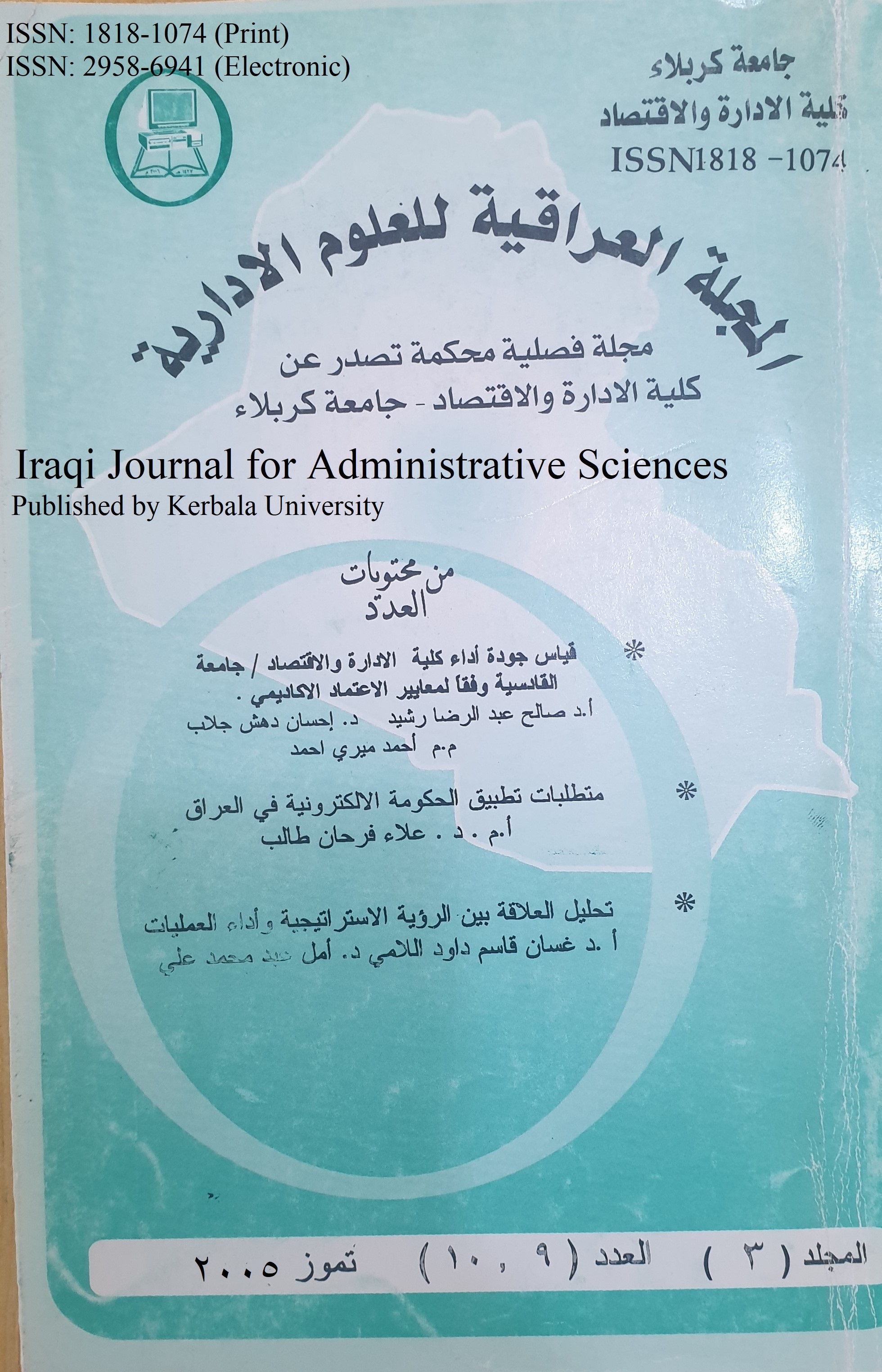Requirements for implementing electronic governance in Iraq - an exploratory study of the opinions of a sample of managers in some Iraqi ministries
Keywords:
Electronic governanceAbstract
The industrial revolution in the nineteenth century changed the form of management in thought and practice to pursue the rapid and successive transformations in machines and equipment of an unprecedented style that that revolution generated, until the change in the parameters of management became a moving target whose stability and subject matter were difficult to predict, which generated fundamental revolutions in the concepts of management and performance and the transformation into... Leadership, distinction and excellence, from professional control to customer sovereignty, from quality control to performance management, from increasing the quantity of outputs to improving quality and accountability for the final results, regardless of the paths leading to these results, and transparency instead of the dark walls in front of the organization’s work and activities, until the middle of the last century came. Which gave birth to a new revolution called the information and technology revolution, which made change an established reality. New concepts began to crystallize, taking their roots from that revolution, such as e-government, e-administration, e-decision, digital and virtual organization and other concepts (Edisonetal, 2002:16) in order to achieve the desired goals of stability and growth and enhance the ability to create new competitive advantages.
Downloads
Published
How to Cite
Issue
Section
License
Copyright (c) 2005 College of Administration and Economics - University of Karbala

This work is licensed under a Creative Commons Attribution-NonCommercial-NoDerivatives 4.0 International License.
Authors retain the copyright of their papers without restrictions.










